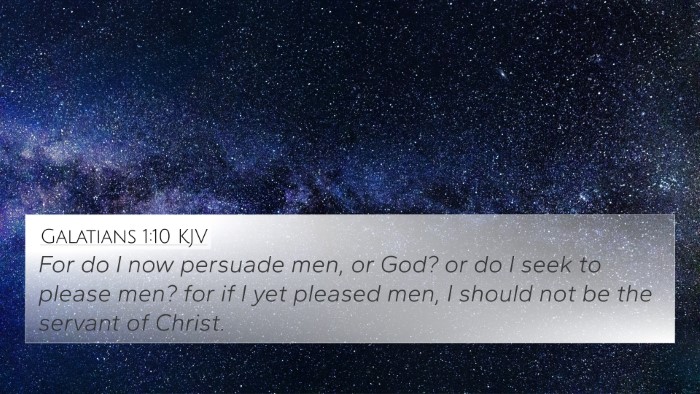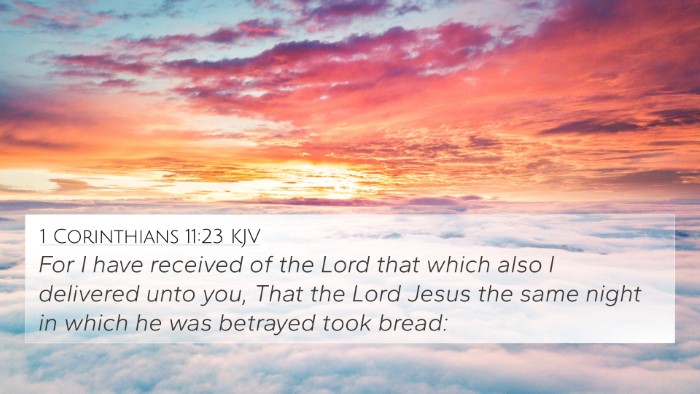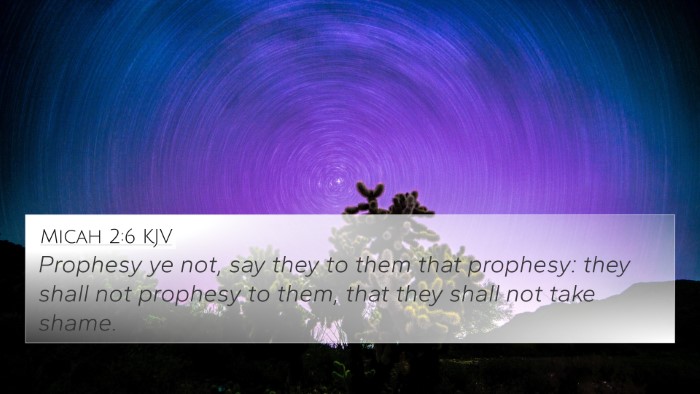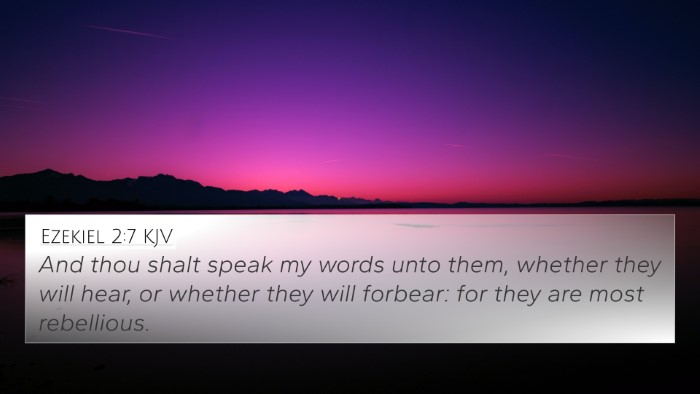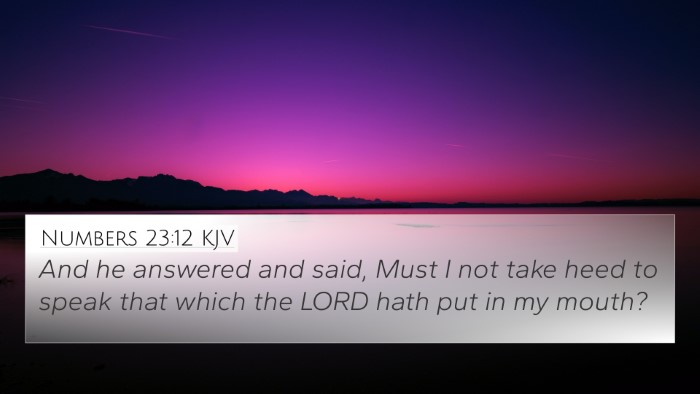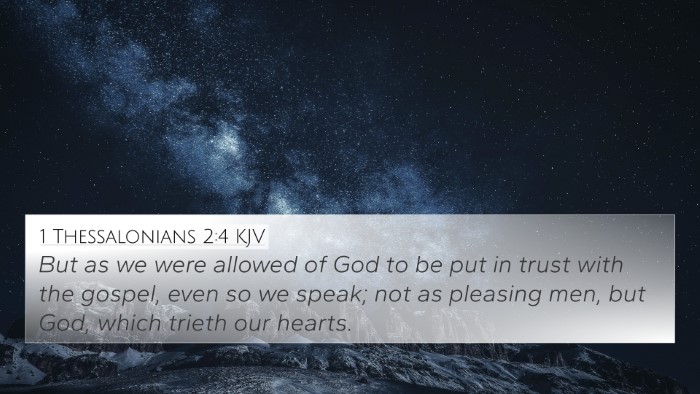Understanding 2 Chronicles 18:13
In 2 Chronicles 18:13, we find a significant moment where Micaiah, a prophet, defies the expectation of Ahab, king of Israel, by boldly proclaiming the truth of God's message despite pressure to conform. This verse reveals the tension between divine truth and human authority.
Verse Overview: “And Micaiah said, As the LORD liveth, even what my God saith, that will I speak.” This statement underscores the unwavering commitment of true prophets to speak God's word, regardless of potential consequences.
Contextual Background
This incident occurs within a narrative where Ahab, seeking validation for his military campaign, consults several prophets who assure him of victory. Micaiah's arrival brings a stark contrast, showcasing the moral courage required to uphold divine truth.
Commentary Insights
- Matthew Henry: Henry emphasizes the importance of Micaiah's honesty and integrity as a prophet, illustrating that true prophecy often stands against popular opinion. He notes that Micaiah’s willingness to speak truthfully, "as the LORD liveth," demonstrates his commitment to God over man.
- Albert Barnes: Barnes highlights how Micaiah's approach is a model for spiritual leaders. He explains that Micaiah's prophetic authority is rooted in his relationship with God, reminding readers that divine wisdom often contradicts worldly expectations.
- Adam Clarke: Clarke points out the significance of Micaiah's declaration, interpreting it as a testament to his faith and conviction. He underscores the idea that regardless of the circumstances, one must remain true to God’s word and will.
Thematic Connections
Micaiah's declaration invites us to explore broader themes within Scripture regarding the relationship between prophecy and authority. The foundational elements of truth, integrity, and divine guidance are inherent in numerous biblical passages.
Bible Verse Cross-References
- 1 Kings 22:14: Micaiah stands firm in delivering God's message, aligning with the call to speak divine truths.
- Jeremiah 1:7-8: God's command to Jeremiah mirrors Micaiah's commitment to speak only what the Lord commands.
- Ezekiel 3:17: The watchman role described here underscores the critical responsibility of prophets like Micaiah.
- Acts 20:27: Paul emphasizes declaring the whole counsel of God, akin to Micaiah's example of thoroughness in prophecy.
- Matthew 10:27: Jesus instructs His followers to speak openly of what they hear in secret, reflecting Micaiah's boldness.
- John 12:49: Jesus reveals His own mission of speaking only what the Father has commanded, much like Micaiah.
- 2 Timothy 4:2: Paul advises Timothy to preach the Word consistently, reflecting the spirit of Micaiah's commitment to truth.
Practical Application
In contemporary times, believers are encouraged to emulate Micaiah's courage. Sharing God's truth often requires standing firm in a world where popular opinion may conflict with divine revelation. The following lessons can be drawn from this verse:
- Courageous Truth-Telling: Just as Micaiah declared the truth despite potential repercussions, believers are called to share the gospel boldly.
- Prioritize Divine Commands: Micaiah’s example encourages prioritizing God’s will over human approval.
- Faithful Representation: Prophets are to serve as truthful representatives of God, urging us to be ambassadors for Christ in our own lives.
Tools for Deeper Study
To further investigate and understand the tenth themes illustrated in 2 Chronicles 18:13, consider utilizing various Bible reference resources and Bible concordance tools.
- Bible Concordance: A comprehensive scripture index can help locate definitions and related verses.
- Bible Cross-Reference Guide: These guides can uncover interconnections within the scripture.
- Cross-Reference Bible Study: Engaging in studies that highlight biblical parallels can deepen understanding of prophetic truths.
- Cross-Referencing Bible Study Methods: Utilize methodologies that encourage analytical reflection on connecting verses.
Conclusion
The confrontation between Micaiah and Ahab serves as a timeless reminder of the importance of truth in prophecy and the courage required to uphold it. As modern believers, we are challenged to speak and act in accordance with God's will, embracing our role as messengers of His divine truth.
Further Study Suggestions:
To enhance your understanding of how this verse connects with others, consider exploring:
- Identifying connections between Old and New Testament
- Cross-references related to prophetic literature
- Bible verses supporting themes of obedience and divine authority






